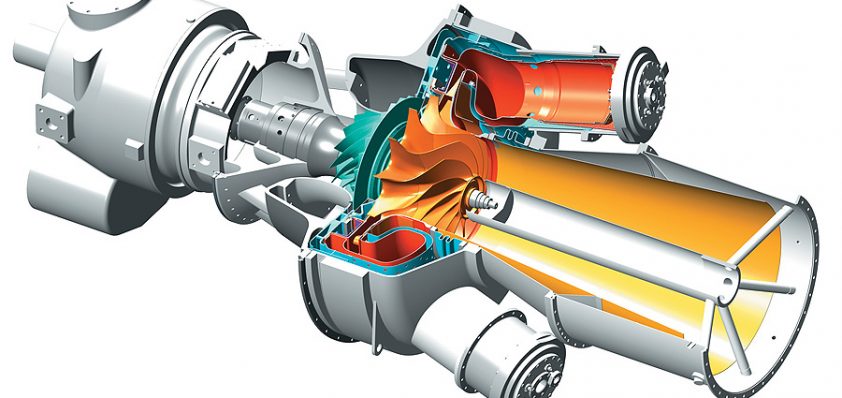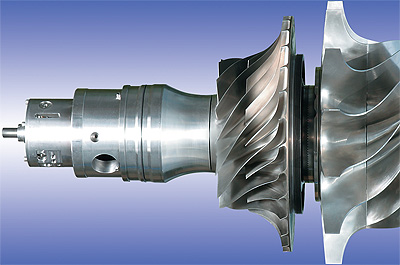
OPRA Turbines: A Global Leader in Diverse Power Generation for Oil, Gas, and Beyond
Powering forward
Operating primarily in the oil and gas industry, but with capabilities that span the industrial and marine sectors, OPRA Turbines is at the forefront of producing power generation systems for a wide range of global clients.
Emanating from Hengelo in the Netherlands, the company has recently added a facility in Stavanger to deal with the demand for its generator sets in the two-megawatt range, which utilise the OP16 series of gas turbines.
“OPRA Turbines is a relatively young company in regards to starting its operations,” states Robert Nijhuis, vice president of sales and marketing. “The business started in 1991 in the Netherlands, and we have been developing the OP16 gas turbine generator sets since then. We started to commercialise the OP16 range in 2003, and last year we opened a new facility in Stavanger. Over the past few years, the company has focused on expanding its global network, which includes sales and marketing, as well as the other departments, including engineering. The result of this focus is that the organisation has grown considerably over the last two years, effectively doubling the amount of employees each year.”
The oil and gas industry has immediately seen the benefits of OPRA’s gas turbine systems, creating extensive demand for the company’s services. As Robert explains: “The response from the market to OPRA Turbine’s package has been overwhelmingly positive, and is even better than my already high expectations! Simply put – the market has been waiting for a two-megawatt gas turbine, as companies like Siemens, Solar, and GE have been expanding to higher power ratings, so our product has penetrated this lucrative area. There are numerous opportunities for OPRA in the industry, and we have many advantages in comparison to other manufacturers. However, it is important to state that the main competition we face is less from gas turbine manufacturers, and  more from gas engine companies.
more from gas engine companies.
“There are substantial differences between the gas turbines we produce, and gas engines,” Robert continues. “For example, the initial investment for gas turbines is typically slightly higher than gas engines. This factor is overtaken by the total cost of ownership analysis, because the cost of maintaining and operating our machinery over a certain period of time is much lower than with gas engines, where downtime availability is far lower, and maintenance more costly.”
Robert is keen to highlight the benefit of OPRA’s gas turbines over engine solutions within the market: “The key factor within equipment supplied to operators in the oil and gas industry is the requirement for simple, robust, reliable systems. The package OPRA is capable of offering, in comparison to other technologies on the market, meets all of these factors: our all radial gas turbines are extremely simple in terms of design, including a overhung rotor, which means there are no bearings in the hot gas path of the turbine. Parts that run in the hot gas path receive a lot of wear and tear, and hence require a lot of maintenance and operations issues – these factors are not applicable to our machines. The simplicity of our turbine means that it is also low in weight, which is important especially in the offshore market. As a result of this, OPRA’s packages are also very compact, so our package footprint is reduced to an absolute minimum.”
The company has worked with many of the industry’s major players, and Robert emphasises the importance of communication in the success of projects: “As far as sales are concerned, we have sold nearly 40 packages in total. The company is marketing the unit via its sales team to clients in the oil and gas industry, taking care of the main territories that we have defined – the Americas, Europe, Africa, and the Middle East. Up to this point, we have sold units to GazProm, BP TNK, Chevron, Lukoil, and Petrobras. Close working relationships are a vital part of our operations, and OPRA is really focusing on offering a machine that can handle the requirements of the oil and gas markets. This industry sets higher demands on the equipment that it uses than typically seen in the power generation markets. Our small, competent team can respond quickly to our clients’ requests, and we are highly flexible in the features we can offer. This also applies to our after-sales services”
Indeed, as previously stated, OPRA is experiencing a period of extended growth, particularly in the scope of people it employs. Robert elaborates on the developments: “We expect a growth of approximately 40 to 50 per cent in the number of people we employ, and we currently have about 100 people on our staff. OPRA can offer the high competence of its employees at every level of the organisation, and we can also offer significant flexibility within our processes. The company is focused on the market as well as our customers, as they are the key factor in our progress. As a result, we can offer products and services that are unique within the industry overall, and specifically in the gas turbine market.
“Research and development is extremely important within our business, primarily because the industry expects state-of-the-art technology,” Robert comments. “Emissions is an area we are particularly focusing on at this time, and we are looking into potentially expanding our product range within this technological discipline. The significant milestone we reached in February 2008 was 100,000 operating hours for our total fleet, which is an important level for OPRA to reach. The acceptance of the market is at a stage where we can deal with any customer on a worldwide scale in the oil and gas industry.”
Robert is highly optimistic towards the opportunities that are available in the oil and gas industry at this time, as well as in other sectors: “In the power generation market, through the product that we offer, we are also optimistic, because there are a number of projects that require an even wider range of fuels. One of the advantages we can offer is the fact that our turbine can burn a wide selection of fuels, including biomass, associated and landfill gas.
“When a company grows as fast as OPRA has done, then it is very important that we achieve stability to ensure that a customer gets its product in time with the quality that they expect,” Robert states cautiously. “So we always look to employ very competent people who know both the industry and our products, and by doing this, we can sustain our growth within the organisation. Ultimately we aim to sell upwards of 100 units annually within the next few years, and I feel this is a target we can achieve,” he concludes.
OPRA Turbines AS
Products Power generation systems